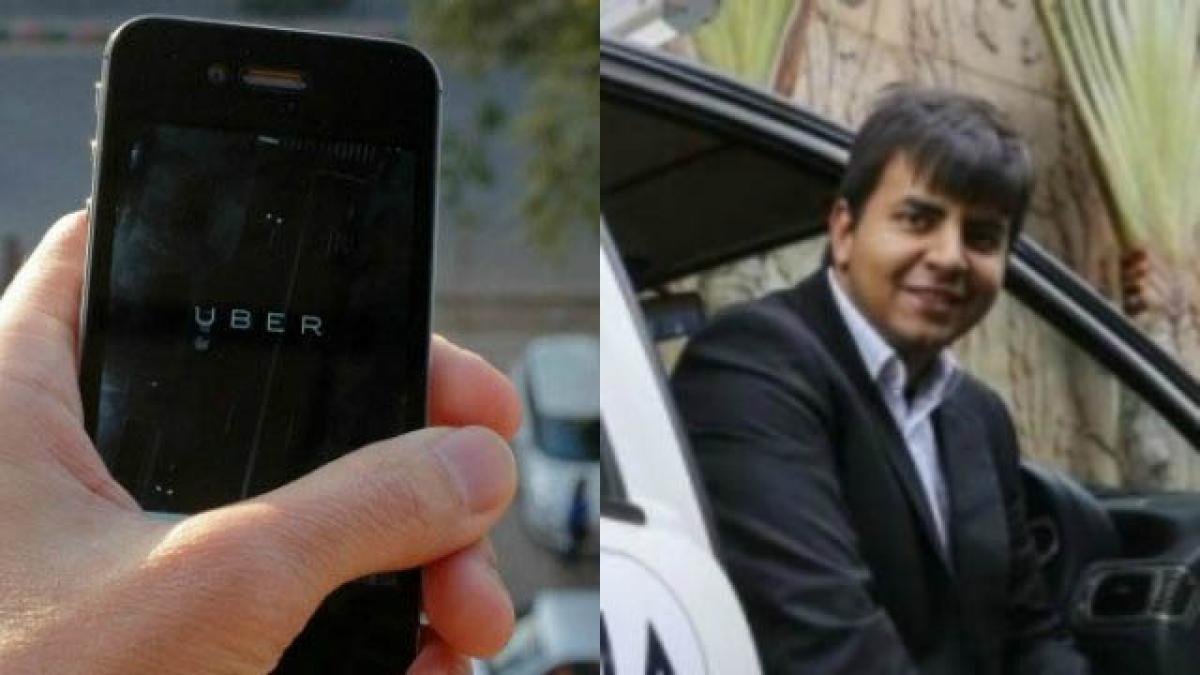Live
- UN experts urge US to end 'double standards' on Israel-Palestine conflict
- Police recovers 220 lost mobiles
- Former Minister Avanti Srinivas Resigns from YSRCP, Citing Personal Reasons
- 3-judge Special Bench of SC to hear today pleas against Places of Worship Act
- MP CM to lay foundation stone for Rs 1,700 crore Sondwa irrigation project in Alirajpur
- Garena Free Fire MAX Redeem Codes for December 12, 2024 – Get Free Rewards
- Vinay Kumar Yaragani’s Strategies to Reduce Unpaid Transactions in E-Commerce
- Telangana: Thieves Rob Three Shops in Armor Town, Nizamabad
- Actor flayed for attack on journalists
- On completion of one year, Bhajan Lal govt in Rajasthan to hand over 15,000 job letters
Just In

As the fight for market share took nationalist overtones, Indian ride-hailing startup Ola hit out at its San Francisco-based rival Uber for fanning the nationalism debate to hide its identity of being a multinational with \"serial violations of law\".
As the fight for market share took nationalist overtones, Indian ride-hailing startup Ola hit out at its San Francisco-based rival Uber for fanning the nationalism debate to hide its identity of being a multinational with "serial violations of law".
"It is a shame that our competition has to fan a debate of nationalism to hide their identity of being a multi-national, with serial violations of law as a business strategy, not just in India, but globally. This debate in our view is not about foreign vs local but who is respectful of the local laws and who is disrespectful," Ola COO Pranay Jivrajka wrote in a blogpost.
While Ola last week was granted a licence to operate its cab aggregation service in Karnataka, Uber said its application was still languishing and officials had asked it to make a fresh application.
Uber, however, continues to operate.
"Over the past couple of days, there has been an irrelevant debate around organisations operating in the country being national or international. Isn't a company like Alibaba, run by a local entrepreneur like Jack Ma, 'Chinese,' despite having a majority of its shareholding from international investors? Aren't the cutting edge technology solutions, high value jobs and Internet ecosystem that Alibaba has built, invaluable assets for China?," Jivrajka wrote.
This was apparently in response to a blogpost by Bhavik Rathod, Uber's general manager of South and West in India.
"What makes Uber 'foreign'? The fact that we are established in San Francisco but have a hyperlocal team solving problems that are locally relevant? Or that, just like our competitors, we received most of our funding from 'foreign' investors?" Rathod wrote in a blog titled 'Let's keep Bangalore moving'.
Jivrajka wrote it is the onus of the business that brings in transformative technology, to work with the government and evolve the ecosystem further in a partnership mode.
"It is only detrimental to the nation's interests to take a confrontational approach. As a matter of principle, Ola has always taken an approach of working in partnership with the government," he added.
Without naming Uber, he said, "When competition entered in India, they launched with a 'card on file' payment system.
This was in gross violation of RBI regulations, yet they continued this for more than a year, fully knowing the violation, and it took an ultimatum from the Governor of the RBI to make them fall in line."
Ola, he said, chose not to do this and had to face significant business disadvantage of customers moving away.
"Similarly, during the Delhi Diesel ban, Ola committed to 100% CNG adoption of vehicles within the state proactively. On the other hand, even after the High Court Orders came into effect, competition chose to continue plying diesel vehicles with absolute disregard for the state and the court of law, until a contempt petition forced them to cease and desist," he said.
Starting from one-BHK apartment in Mumbai, Ola has built its business on the strong foundation of creating value for society. "And reposing its faith in the institutions of the judiciary and government," he added.

© 2024 Hyderabad Media House Limited/The Hans India. All rights reserved. Powered by hocalwire.com







